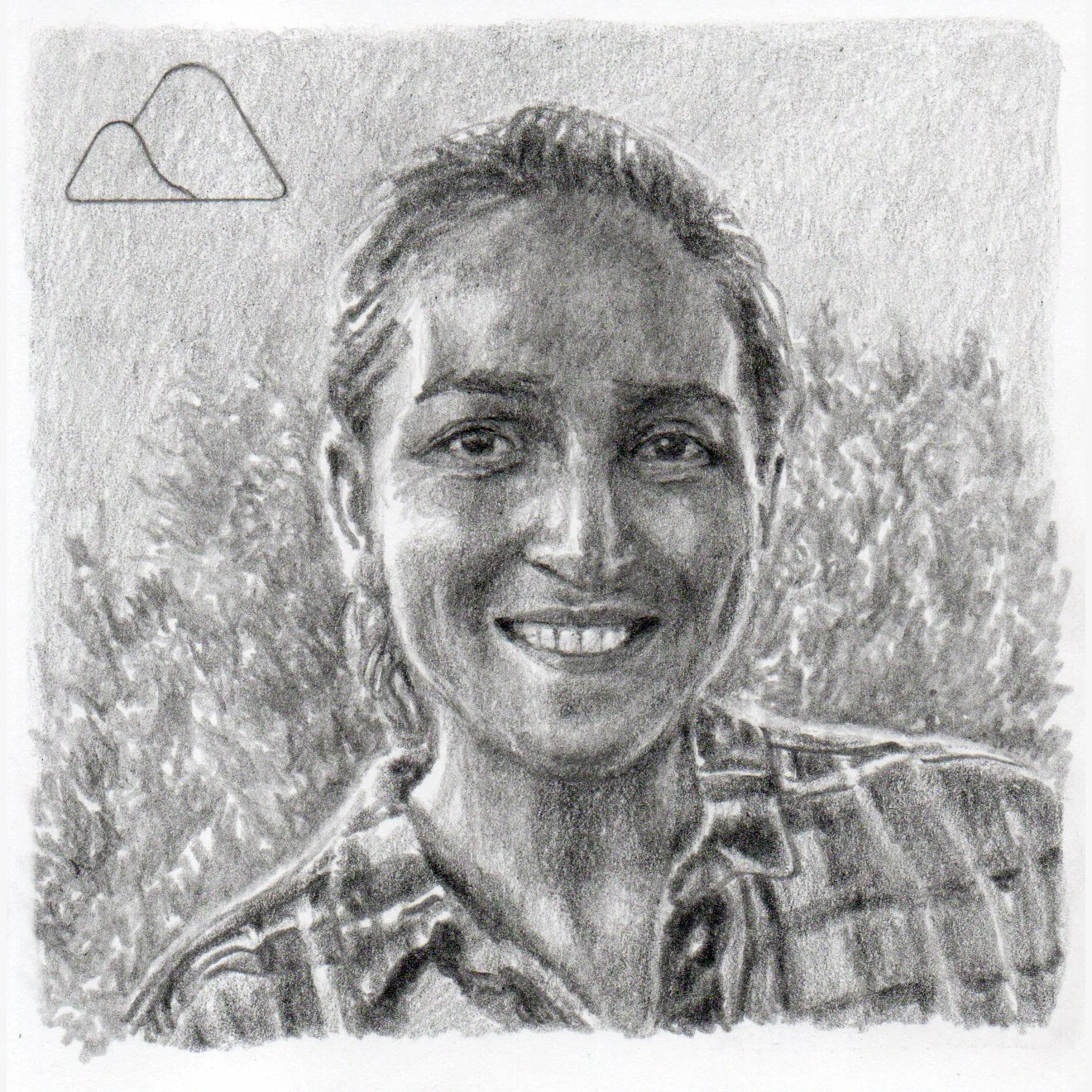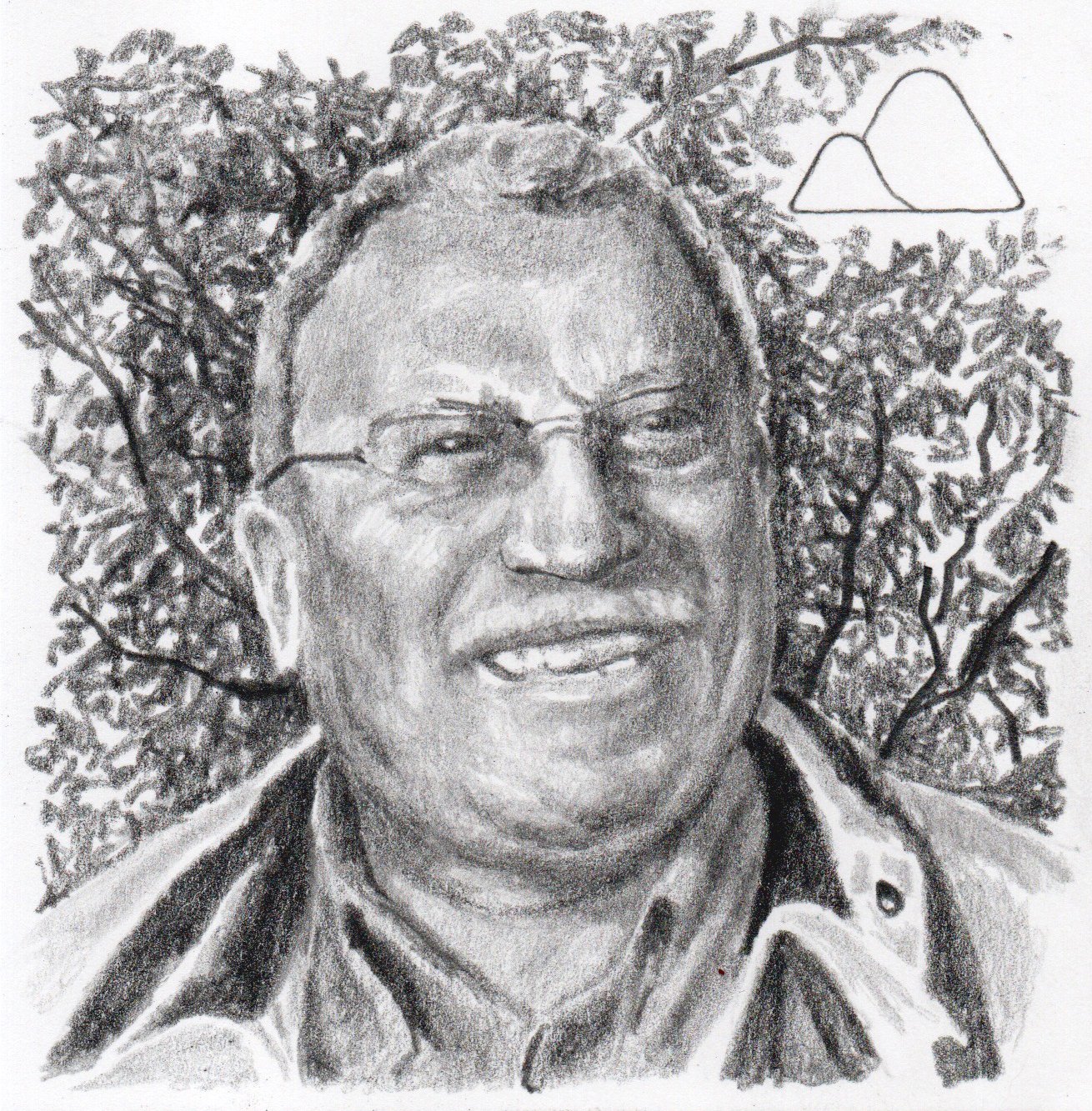
Coffee farmers: our partners and friends
-
Coffee farmer José Arguello, owner of Finca Santa Cruz, is the winner of 1st place in the Cup of Excellence Mexico 2019, 2021, 2022, and 2nd place in 2023.
A professional agronomist, he took over the farm from his father, who worked for many years at Amecafé. After meeting Pepe, and seeing his plants and processing, it's not hard to imagine why he won the most prestigious competition for Mexican coffee with a score of 93.07 points. Pepe grew up in the coffee fields and blends science, passion, tradition, and ambition. Pepe likes to experiment, research, and travel to improve. When we brought him a gift of coffee from the recently discovered eugenioides species, which is only being cultivated on a farm in Colombia, he responded, "I have some planted back there in the nursery." This means that Pepe has impressive and continuously evolving knowledge about coffee farming.
-
Enrique López is undoubtedly the pioneer of Mexican specialty coffee. Enrique is known for being a pioneer in experimental fermentations, for planting different genetic varieties, and for having a visionary perspective on the industry. He shares all this knowledge every year through courses for coffee farmers, probably being the most important teacher of coffee producers in Mexico. He is the founder of the term extraordinary coffee to differentiate the highest category of specialty coffee. His coffee is found within the highest category within the offerings of Intelligentsia, Toby's Estate Coffee, and dozens of other specialty coffee shops around the world.
-
Samuel is the third generation of a line of coffee producers from Veracruz, although coffee runs through his veins, in his youth he tried to distance himself from the farms by migrating to Tijuana. Destiny brought him back to Veracruz to develop the region's tourism sector, and in the end, he couldn't resist the charm of coffee.
La Joya is not only one of the best coffee farms in Mexico but it also serves as an exemplary model to educate coffee farmers. La Joya’s coffees have been served in barista as well as brewers competitions in Mexico, Canada, the US, and even Bulgaria. Gloria and Samuel have carefully designed experiments monitoring a huge range of variables and linking cupping results with scientific knowledge. This method has not only resulted in huge improvements in their coffee but consistency. What they produce is not strikes of luck but designed protocols.
Gloria and Samuel have identified the soil type, slopes, brightness, and rainfall movement, among other variables in their farm to make scientific-based decisions about where to plant each of their varieties without disturbing the native flora and fauna. Gloria has experimented using different micro-organisms and fermenting with CO2, without the presence of oxygen for various extensions of time and with different fermentation tank forms and materials.
-
Even though Mr. Beristain's family has been in coffee cultivation for 3 generations, venturing into the world of specialty coffee is something new for him. The coffee-growing area of Totula usually sells coffee cherries to large companies that process and export them. Neighboring coffee farmers harvest their cherries without much care, seeking to receive a price based on volume rather than quality. So, the vast majority are harvesters who do not know the processes to add value to the seed. In this context, Rafael Beristain decided to do something different, processing his coffee with such care that he could access a market that would pay well for his effort, the specialty market. Starting from scratch, he began watching videos on YouTube that taught him how to process his coffee, and then with more experience, he sought the advice of industry professionals such as Enrique López from Finca Chelín. Nowadays, Don Rafa is known for experimenting with yeasts, temperatures, and fermentation times in search of improving his product.
We have been helping Rafa finance the picking season; we jointly invested in an optic sorting machine; got him to work with PhD Itzel Morales, a coffee scientist who speciali- zed in identifying and selecting microorganisms for fermentation through DNA analysis; and also buying ginger and turmeric from this farms. We are proud to say the 2024 harvest was the first season where the Beristain family did not sell a single cherry and thanks to that their quality of life has improved as well as their coffee. Rafa is an example of what we strive for as a company.
-
Manto Niebla has a very interesting backstory. The Villareal Brothers have extensive experience in agronomic product cultivation in the northern part of Mexico. When exporting their products, buyers began to request coffee, specifically from Pluma Hidalgo. Just to meet the demand, they started marketing coffee alongside their products until one day they decided to buy a farm in the famous Pluma Hidalgo region. One thing we admire about the Villareal Brothers is their determination to do things right from the start; they didn't take any shortcuts and set out to be an icon for Mexican coffee growers from the beginning. To achieve this, they started by seeking proper advice, and in this year 2021, they asked Don Federico Barrueta, our friend from Finca La Ilusión in Temascaltepec, to help them with processes.
Pancho is an agronomist, and his sister is a wine sommelier. Together, they achieve a comprehensive understanding from the coffee plant to the cup. Undoubtedly, we believe that Manto Niebla is currently one of the farms with the greatest potential in the country.
-
When we started roasting coffee, without hesitation, we chose coffee from Atoyac de Álvarez, Guerrero to begin with. A state that has suffered greatly from insecurity issues but has privileged terroir for agricultural products. Despite our affection for this origin (as one of our partners' families comes from there), the insecurity conditions in the mountains of Guerrero have caused a vicious cycle in which there are fewer and fewer coffee growers. Those who continue to cultivate coffee face adverse conditions such as lack of access to financing, education, tools for pest control, among others.
However, we have found coffee growers who are fighting against these adversities and continue with the goal of producing quality, such as Félix Aguilar. Don Félix is the first generation to produce coffee, and as a coincidence, part of the land he has acquired over the years belonged to the family of one of our founding partners.
Don Félix not only produces high-quality coffee but also experiments with experimental processes such as anaerobic fermentations and takes care of the safety of his process by disinfecting the cherries before they are fermented. Finding Félix has been incredible and a constant reminder of our origin.
-
After retiring from his career as an aircraft mechanic for the Air Force, Don Federico returned to his parents' land in Temascaltepec, State of Mexico, where he found coffee plants growing wild. This is how Don Federico decided to try his luck with coffee cultivation. With just two and a half hectares, he realized that to succeed, he couldn't focus on producing volume but only the best quality. Undoubtedly, Don Federico marked a before and after in our way of seeing coffee. Thanks to the proximity of our roaster's farm (2 hrs. by car), we have been able to establish a very close relationship with him; supporting him with investments in equipment, as well as with the school he is building. We fully share his vision of seeing specialty coffee as a vehicle for small coffee growers in the country to achieve profitability and thus economic development in their community. He has targeted his efforts into quality and not quantity.
In June 2020, Don Federico built a space to teach classes and share his knowledge about coffee with his neighbors, aiming to improve the quality of coffee in the State of Mexico and thereby the economic development of coffee-growing regions. His desire is not to be the only coffee from the State of Mexico that is nationally recognized; specialty coffee pays better if it is well produced, and this can help develop the region.
-
Producer Lucero Caballero, Temascaltepec, State of Mexico. It is located on the slopes of the Nevado de Toluca, about 1.5 hours from Mexico City. The elevation is over 2100 meters above sea level. It is a cold area considering the elevation, but a warm microclimate is created for coffee because it is a basin between the mountains. Peaches and avocados are also produced in the area. It is a small region, so the few producers have focused on quality rather than quantity. The master followed by all the producers in the area is Don Federico Barrueta, awarded the presidential coffee prize for three years. Lucero is an apprentice and partner of Don Federico.
In addition to producing delicious coffee, Lucero produces organic honey and strawberries. Her main job is to manage the industrial dining hall of a mine in the area. She takes care of the coffee and other products in the afternoons when she finishes her main job.
Lucero seeks to care for her plants with minimal land invasion to avoid harming the ecosystem. She only harvests the cherries when they are ripe, of an intense red color. She gives them slow drying to ensure that their natural sugars are preserved to the maximum. Finally, she does a manual selection to guarantee consistency and eliminate any defects.










